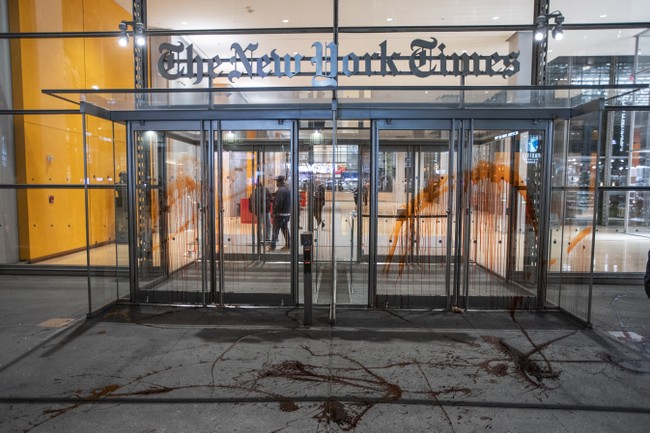
The New York Times has come under fire for its coverage of the recent shooting at a Catholic school in Minneapolis, which left multiple individuals injured. Mary Katherine Ham, a prominent commentator, criticized the newspaper for what she described as a misleading headline that obscured key facts about the alleged shooter, Robert Westman, who identifies as transgender.
During the tragic incident on March 6, 2024, Westman, who changed his name to Robin in 2019, was reported to have mental health issues. Ham contends that the media’s portrayal of Westman fails to provide a comprehensive understanding of the events, arguing that the emphasis should not solely be on gender identity but also on the broader context of the shooter’s mental health.
Concerns Over Media Representation
Ham’s critique centers on the assertion that journalism should aim to clarify the facts surrounding significant events. She claimed that the New York Times, in its coverage, appeared more interested in protecting political narratives than reporting the truth. “A woman did not commit this crime. Nor was he simply a young man,” she stated, emphasizing Westman’s identity as a “trans-identifying biological male.”
According to Ham, the media’s reluctance to address the shooter’s gender identity directly reflects a broader trend of prioritizing political correctness over journalistic integrity. She argued that the narrative surrounding Westman is influenced by a desire to avoid mischaracterization, leading to a lack of transparency in reporting.
Ham pointed out that Westman himself expressed feelings of regret about his gender identity, stating, “Tired of being trans” and “wish I never brainwashed myself.” These remarks underline the complexity of his situation, raising questions about the role of societal pressures in the lives of individuals grappling with gender identity.
Public Trust in Journalism
The backlash against the New York Times reflects a growing skepticism among the public regarding mainstream media. Critics, including Ham, suggest that the media’s handling of sensitive topics often leads to mistrust. They argue that a focus on political ideology can overshadow the responsibility of journalists to provide accurate and balanced reporting.
Ham concluded her remarks by asserting that the media’s approach to sensitive issues, particularly those involving mental health and gender identity, should prioritize the truth over narratives that align with specific political agendas. The ongoing debate highlights the challenges faced by journalists in an era where political considerations can heavily influence coverage.
As discussions about the role of journalism evolve, the Minneapolis shooting serves as a poignant example of the delicate balance between reporting facts and navigating complex social issues. The call for greater accountability and transparency in media remains a pressing concern for many observers.







